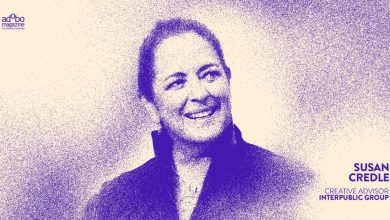MANILA, PHILIPPINES — Cultural and arts contributor Rhadem Musawah delves into the story of Palestinian refugees repatriated in the Philippines and how they bring the culinary taste of Gaza to Metro Manila. In attendance at an organized and open Iftar event, the fast-breaking evening meal of Muslims in Ramadan, Rhadem engages with individuals impacted by war, exploring how they use food as an agent of change and healing in their new home — the Philippines.
Last March 29, I had the privilege of attending an Iftar event called “Our Little Gaza Kitchen,” organized by a colleague from the Philippine Commission on Human Rights. The event brought together repatriated Palestinian refugees, and it was there that I met Fayda, a mother of two. Born to a Filipina mother and a Palestinian father, Fayda had spent most of her life in Gaza, Palestine, working as an English teacher under the United Nations Relief and Works Agency for Palestine Refugees, educating children in the Gaza Strip.
Fayda shared with me the hardships her family faced after the October 07 incident, which led to the destruction of their home and neighborhood by the Israeli Defense Forces. In November 2023, her family was repatriated to the Philippines with the help of the Department of Foreign Affairs, leaving behind her husband, who was later found alive and joined them in the Philippines.


Adjusting to a new life in the Philippines, particularly finding employment, came with challenges. Many of these repatriated families had high academic credentials and work experience, but their documents were destroyed in the bombing of homes and establishments in Gaza. While some of them struggled with finding jobs due to language barriers, efforts were being made to address this issue.
They are very grateful for the kindness and donations received from the Filipino community. However, Fayda expressed the importance of finding employment to sustain her family in the Philippines. A group of 16 Palestinian families, approximately 70 to 80 people, was currently residing in a compound building provided by Kamilah Dimaporo Manala-o in Quezon City to help these communities have a better shelter as they try to build a new future in the Philippines. While uncertain of what lies ahead, these families remained hopeful and resilient.
The “Our Little Gaza Kitchen” initiative, organized by Palestinian mothers and their supporters, aimed to showcase Palestinian cuisine during Ramadan. The event brought together the community where each family prepared a traditional Palestinian dish to share meals and dreams of starting a pop-up kitchen to support their new beginning in the Philippines.
The Philippines has a long history of welcoming refugees and displaced communities, reflecting a strong humanitarian tradition. Cecelia Hernandez of the Department of Foreign Affairs, emphasized the importance of supporting repatriated families to ensure their safety and integration in the country.
Project URDUHA, an initiative under the Office of the Undersecretary on Civilian Security and Consular Affairs and other partner organisations, continues to assist the repatriated families in various ways, such as providing health training, hygiene kits, shelter and kitchen supplies..


Despite the challenges faced by Palestinian families, the ‘’Our Little Gaza Kitchen’’ iftar event served as a reminder of their resilience and determination. The gathering not only showcased Palestinian cuisine but also highlighted their culture and the story of the Palestinian community who were ab. Through their love for food and culture, the Palestinian families in the Philippines aimed to reconnect with people and share a taste of Gaza in their new home.
The ongoing conflict in Gaza, compounded by a humanitarian crisis, has left many Palestinians struggling to access basic necessities like food. The repatriated families in the Philippines were thankful for the opportunity to enjoy Palestinian meals. They hoped for a brighter future, not only for themselves but for those still trapped in Gaza.
Cecelia reiterated their commitment to supporting Palestinian families and helping them achieve a better quality of life in the Philippines. While the future remains uncertain, the families aspire to create a sense of home and belonging through their culinary traditions. As they navigate their journey of rebuilding and recovery, the families find solace and strength in the memories and flavors of Palestinian cuisine, using food as a form of resistance and resilience.
Despite the challenges, the Palestinian families found strength in their culinary traditions, using food as a form of resistance and resilience. The taste of Palestinian history reminded them of their roots and perseverance in the face of adversity. Through ongoing support from private individuals, government agencies, and other organizations, Palestinian families in the Philippines are determined to carve out a new future filled with warmth, community, and delicious food, preserving their culture and heritage in the process.










